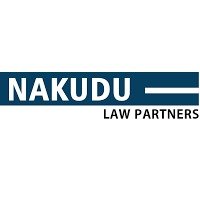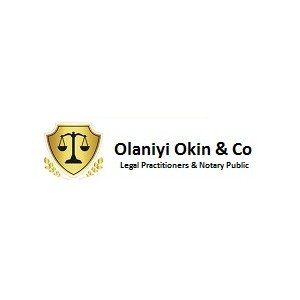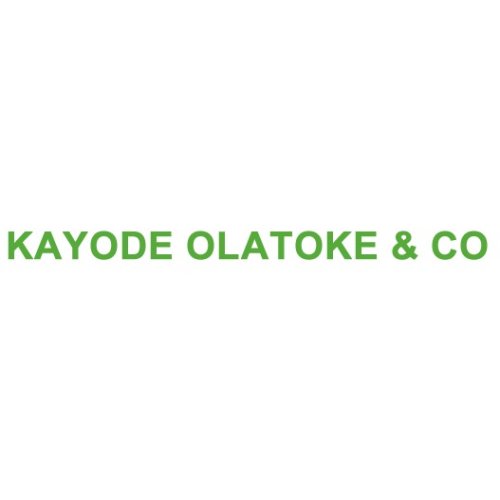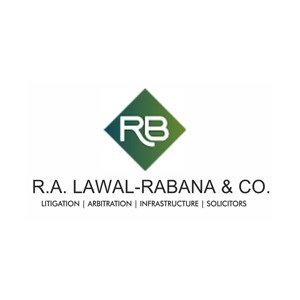Best Banking & Finance Lawyers in Nigeria
Share your needs with us, get contacted by law firms.
Free. Takes 2 min.
Or refine your search by selecting a city:
List of the best lawyers in Nigeria
Legal guides written by Adeola Oyinlade & Co:
- Procedure and Requirements for Work Permit and Visas in Nigeria
- The Step-By-Step Procedure of How to Apply for Microfinance Bank License Online in Nigeria
- How to Ensure the Smooth Recognition and Enforcement of Foreign Judgments in Nigeria
Nigeria Banking & Finance Legal Questions answered by Lawyers
Browse our 3 legal questions about Banking & Finance in Nigeria and read the lawyer answers, or ask your own questions for free.
- My bank mistakenly credited my account and I withdraw the money as I was expecting money at that time. I wasn't contacted by the bank till after 3-4weeks. Now the banks are blocking my BVN and putting my account on watch list. How do I resolve this? T
- Bank negligence, wrong crediting of my account.My bank mistakenly credited my account, and I withdrew the money as I was expecting money at that time. I wasn't contacted by the bank till after 3- 4 weeks. Now the banks are blocking my BVN and putting my account on the watch... Read more →
-
Lawyer answer by Afe Babalola & Co. (Emmanuel Chambers)
Even though it was the bank’s error, withdrawing money that was mistakenly credited to your account—without reporting it—is legally considered a crime under Nigerian law. It's classified as: Theft (under the Criminal Code) Or Obtaining by false pretense (under the...
Read full answer - recover money sent to a scammer
- Is there any way to recover money sent to a scammer through their bank account details, and if yes, what are the steps to be taken?
-
Lawyer answer by Kabbiz Legal & Advisory
Hello, We are sorry that you sent your hard-earned funds to a scammer who has defrauded you of the same. As to your question, the short answer is yes, you can recover the money you sent to a scammer. There...
Read full answer - I need an advise on handle the organisation I borrowed money from
- The organisation I borrowed money to finance my business are on my neck and I don't know what to next
-
Lawyer answer by Advocare Populi Law Firm
We need to see the documents evidencing the transaction to be able to advise properly.
Read full answer
Nigeria Banking & Finance Legal Articles
Browse our 3 legal articles about Banking & Finance in Nigeria written by expert lawyers.
- The Step-By-Step Procedure of How to Apply for Microfinance Bank License Online in Nigeria
- The Central Bank of Nigeria (CBN) has launched a new online platform for submitting microfinance bank (MFB) license applications, known as the CBN Licensing, Approval, and Other Requests Portal. The new online platform replaces the previous laborious approach of physically submitting MFB license applications to the CBN. These are the... Read more →
- How to Establish a Microfinance Bank in Nigeria
- Microfinance Bank (MFB) is any company licensed by the Central Bank of Nigeria (CBN) to carry on the business of providing financial services such as savings and deposits, loans, domestic funds transfer and non-financial services to microfinance clients.What are the specific objectives of the new microfinance policy?The specific objectives of... Read more →
- Banking Services in Nigeria: A Look at The Legal Remedies Available to Customers
- Who are bank customers?Generally, a customer of a bank is someone who has an account with a bank, or without having an account the relationship of banker and customer exists. In the latter case, some money transactions must connect the banker and the customer but must arise from the nature... Read more →
About Banking & Finance Law in Nigeria
Banking and finance law in Nigeria is a vital aspect of the country's legal system, governing the operations of financial institutions and the conduct of financial transactions. The sector is regulated by various laws and regulations that aim to ensure the stability of the financial system, protect consumers, and promote economic growth. Key regulatory bodies include the Central Bank of Nigeria (CBN), the Nigerian Deposit Insurance Corporation (NDIC), and the Securities and Exchange Commission (SEC). The banking sector is characterized by both conventional and Islamic banking, while the finance aspect encompasses areas such as securities, investment, insurance, and pensions.
Why You May Need a Lawyer
There are several reasons why individuals or businesses might require legal assistance in banking and finance:
- Entering into a loan or credit agreement and needing clarity on terms and conditions.
- Encountering disputes with financial institutions over account operations or transactions.
- Guidance on regulatory compliance for businesses within the financial sector.
- Assistance with debt restructuring or insolvency proceedings.
- Navigating complex financial products or investments.
- Negotiating and drafting financial contracts and agreements.
- Fraud or financial misconduct issues.
- Advisory on mergers, acquisitions, or corporate restructuring involving financial entities.
- Tax planning and compliance within the financial sector.
- Resolving issues related to consumer protection rights in banking services.
Local Laws Overview
The Nigerian banking and finance landscape is governed by several key laws and regulations, including:
- The Banks and Other Financial Institutions Act (BOFIA), which provides comprehensive regulations for financial institutions.
- The Central Bank of Nigeria Act, which outlines the functions and powers of the Central Bank.
- The Nigerian Deposit Insurance Corporation Act, which deals with the protection of depositors and financial stability.
- The Investment and Securities Act, which regulates the securities and investment sector.
- The Companies and Allied Matters Act, which affects corporate governance in financial institutions.
- The Money Laundering (Prohibition) Act, focusing on preventing illegal financial activities.
- The Pension Reform Act, which governs the administration of pension funds.
Frequently Asked Questions
1. What is the role of the Central Bank of Nigeria?
The Central Bank of Nigeria (CBN) is responsible for formulating monetary policy, issuing currency, regulating and supervising financial institutions, maintaining external reserves, and ensuring financial system stability in Nigeria.
2. How can I resolve a dispute with my bank?
You can resolve a dispute with your bank by initially contacting the branch manager or customer service. If unresolved, escalate to the bank’s ombudsman and, if necessary, seek legal advice or approach the Consumer Protection Department of the CBN.
3. What are my rights as a bank customer in Nigeria?
Bank customers in Nigeria have rights including the right to fair treatment, transparent information, confidentiality, and redressal of grievances. Guidelines by the CBN ensure banks comply with customer protection standards.
4. Can a bank change the terms of my loan agreement?
A bank cannot unilaterally change the terms of a loan agreement without your consent. Any change must be negotiated and accepted by both parties to be valid.
5. What constitutes financial fraud?
Financial fraud includes activities like unauthorized transactions, identity theft, forgery, money laundering, and insider trading. Such activities are illegal and can warrant severe penalties.
6. How is Islamic banking different from conventional banking in Nigeria?
Islamic banking operates in compliance with Sharia law, prohibiting interest (Riba) and engaging in ethically aligned investments. It uses profit-sharing and leasing instead of traditional interest-based services.
7. What is a lien in banking terms?
A lien is a legal right a bank has to keep possession of the property belonging to someone until a debt owed by that person is discharged. Liens in banking can affect account holders and borrowers.
8. How do investment returns in Nigeria get taxed?
The taxation of investment returns in Nigeria depends on the type of income; interests, dividends, and capital gains are subject to specific tax regulations determined by the Federal Inland Revenue Service.
9. What is the process for getting a loan in Nigeria?
To obtain a loan, approach a bank with your financial statements, business plan, and personal information. The bank will evaluate your creditworthiness before approving and disbursing the loan under agreed terms.
10. Who regulates the insurance sector in Nigeria?
The insurance sector in Nigeria is regulated by the National Insurance Commission (NAICOM), which ensures compliance with legal standards and promotes the development of the insurance market.
Additional Resources
For further information or assistance, consider reaching out to:
- The Central Bank of Nigeria (CBN)
- The Nigerian Deposit Insurance Corporation (NDIC)
- The Securities and Exchange Commission (SEC)
- The Nigerian Stock Exchange (NSE)
- The Chartered Institute of Bankers of Nigeria (CIBN)
- The Financial Reporting Council of Nigeria (FRC)
- The Consumer Protection Council (CPC)
Next Steps
If you require legal assistance in banking and finance, consider the following steps:
- Identify your specific legal issue or needs related to banking and finance.
- Research and shortlist experienced legal practitioners specializing in banking and finance law in Nigeria.
- Schedule consultations to discuss your situation and explore potential legal strategies.
- Evaluate the advice offered and confirm the lawyer who aligns best with your needs and budget.
- Proceed with formalizing your legal service engagement and follow the agreed plan of action.
Lawzana helps you find the best lawyers and law firms in Nigeria through a curated and pre-screened list of qualified legal professionals. Our platform offers rankings and detailed profiles of attorneys and law firms, allowing you to compare based on practice areas, including Banking & Finance, experience, and client feedback.
Each profile includes a description of the firm's areas of practice, client reviews, team members and partners, year of establishment, spoken languages, office locations, contact information, social media presence, and any published articles or resources. Most firms on our platform speak English and are experienced in both local and international legal matters.
Get a quote from top-rated law firms in Nigeria — quickly, securely, and without unnecessary hassle.
Disclaimer:
The information provided on this page is for general informational purposes only and does not constitute legal advice. While we strive to ensure the accuracy and relevance of the content, legal information may change over time, and interpretations of the law can vary. You should always consult with a qualified legal professional for advice specific to your situation.
We disclaim all liability for actions taken or not taken based on the content of this page. If you believe any information is incorrect or outdated, please contact us, and we will review and update it where appropriate.
Browse banking & finance law firms by service in Nigeria
Nigeria Attorneys in related practice areas.
Browse banking & finance law firms by city in Nigeria
Refine your search by selecting a city.

















